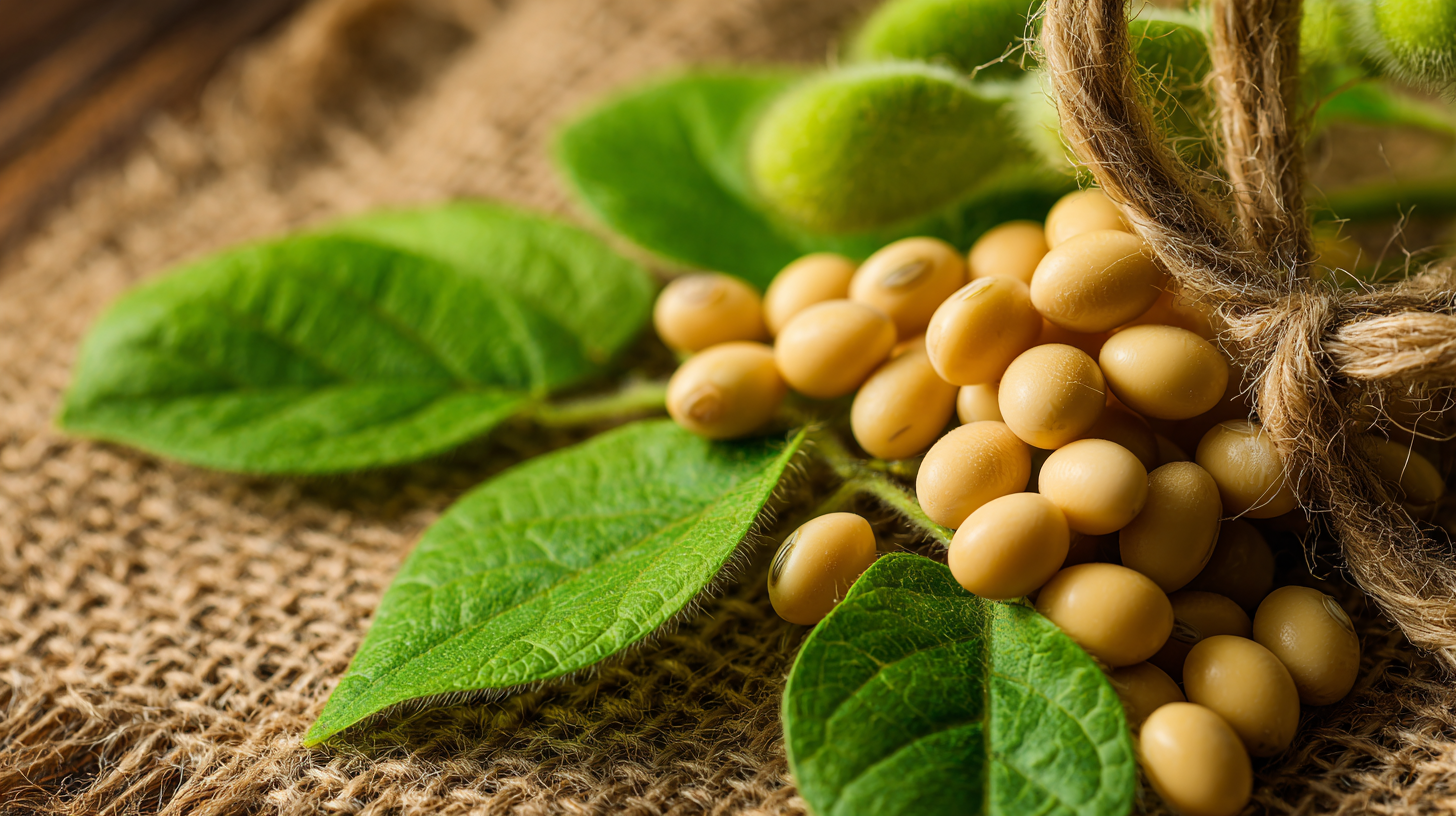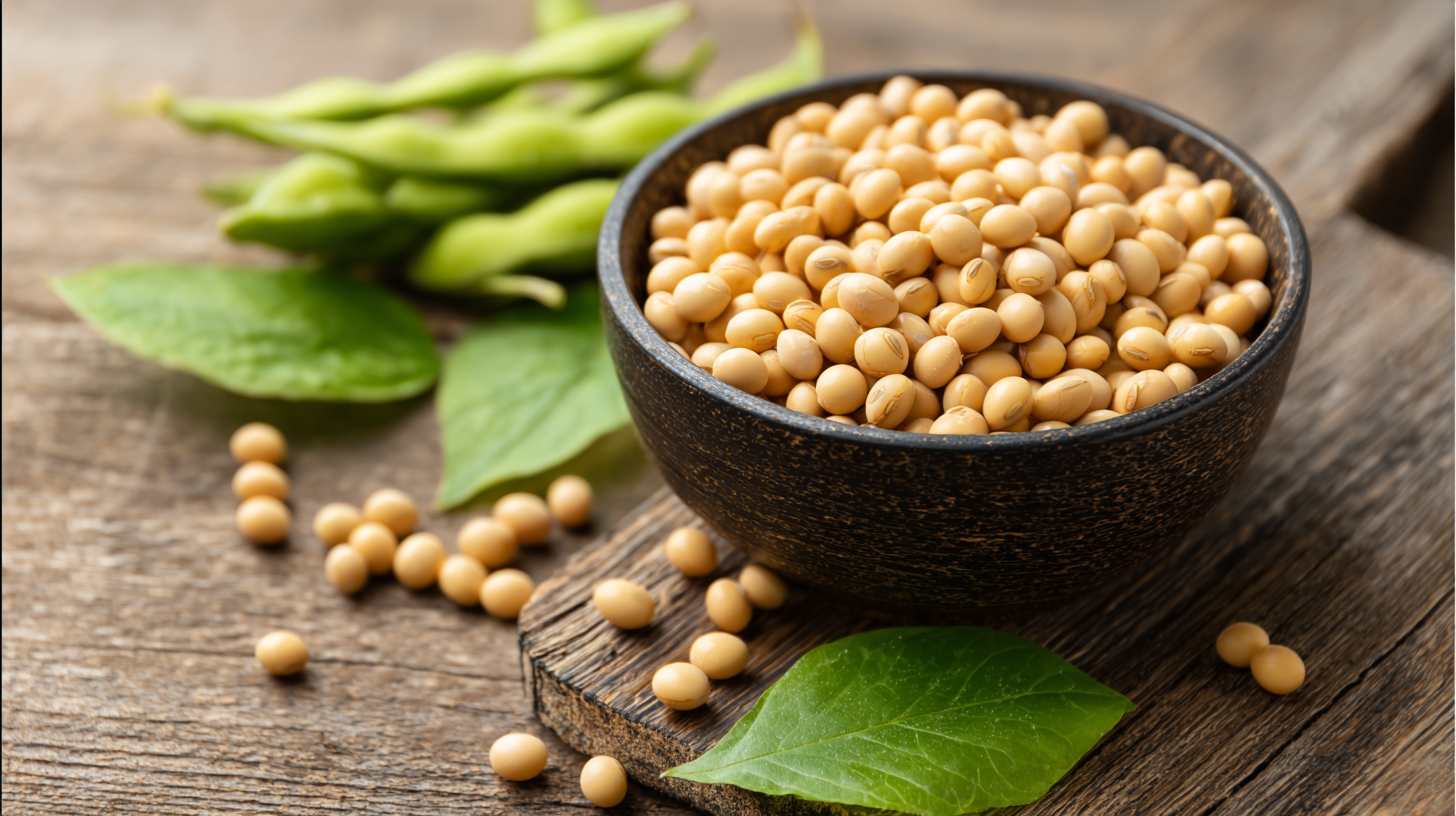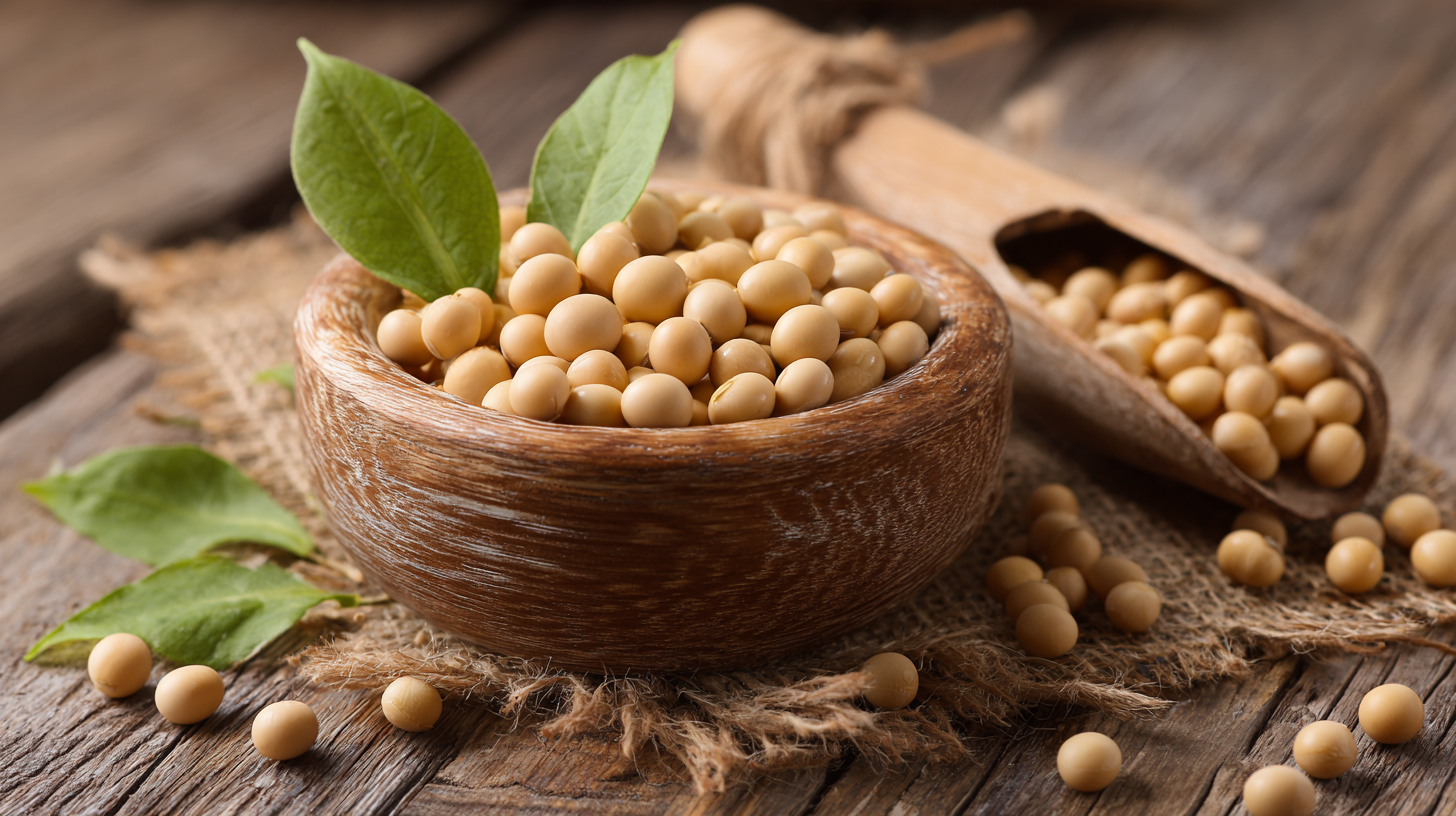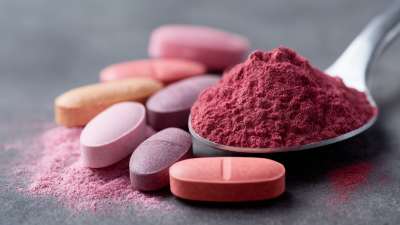Inquiry
Form loading...
In recent years, the health benefits of soy isoflavones have gained significant attention, particularly in the context of dietary interventions aimed at promoting hormonal balance and reducing the risk of chronic diseases. According to a report published by the American Journal of Clinical Nutrition, consumption of soy isoflavones has been linked to a 26% reduction in the risk of breast cancer among women, making them a crucial component in a health-conscious diet. Furthermore, the World Health Organization highlights that incorporating soy isoflavones can significantly impact heart health, with studies indicating a 10% reduction in LDL cholesterol levels. As consumers increasingly seek plant-based alternatives, understanding how to effectively maximize the benefits of soy isoflavones becomes paramount. This blog offers seven expert tips to seamlessly integrate soy isoflavones into your daily routine, ensuring you harness their full potential for overall wellness.

Soy isoflavones, phytochemicals found primarily in soybeans, are known for their various health benefits. These compounds, classified as phytoestrogens, mimic the effects of estrogen in the body, which can be particularly beneficial for women experiencing menopause. According to a report from the National Institutes of Health, regular consumption of soy isoflavones can reduce menopausal symptoms such as hot flashes by up to 26%. Additionally, isoflavones have been associated with improved bone health due to their potential to reduce bone density loss, making them crucial in the fight against osteoporosis.
The benefits of soy isoflavones extend beyond hormonal health. Research published in the Journal of Nutrition has demonstrated that individuals consuming soy products can lower their cholesterol levels by 5% to 10%, significantly reducing heart disease risk. In a study analyzing data from nearly 200 publications, the American Heart Association concluded that including soy foods in the diet contributes to cardiovascular health. Moreover, soy isoflavones are linked to potential cancer-preventive properties, particularly regarding breast and prostate cancers, with data suggesting that regular soy consumption may reduce breast cancer risk by as much as 26%. Adding soy isoflavones to your daily diet can not only address specific health concerns but also foster overall well-being.
Choosing the right sources of soy isoflavones for your diet is essential to fully leverage their health benefits. Research indicates that soy isoflavones, particularly genistein and daidzein, can have positive effects on bone health, menopausal symptoms, and even heart health. According to a study published in the Journal of Nutritional Biochemistry, regular consumption of soy isoflavones can reduce the risk of cardiovascular diseases by up to 30%. Thus, opting for high-quality soy products is crucial.
One way to maximize the benefits of isoflavones is to choose fermented soy products like tempeh and miso. Fermentation enhances bioavailability, making the isoflavones easier for your body to absorb. Additionally, tofu and edamame are excellent sources, offering the added benefit of protein. Aim to include a variety of these sources in your diet; studies suggest that consuming 25 grams of soy protein daily can lead to significant reductions in cholesterol levels.
Furthermore, consider incorporating whole soy foods instead of processed soy products. Many commercial soy milk and protein powders may contain added sugars and preservatives, which can diminish the health benefits of isoflavones. Aim for products that are minimally processed and verify that they contain at least 50 mg of isoflavones per serving, a level associated with health improvements in various clinical studies. By carefully selecting your soy sources, you can maximize the health benefits that soy isoflavones offer.
Incorporating soy isoflavones into your everyday meals can be both simple and delicious. One of the easiest ways to do this is by adding soy products such as tofu, tempeh, or edamame to your weekly meal plan. For a quick lunch, consider a stir-fry featuring fresh vegetables and firm tofu marinated in your favorite sauce, or toss edamame into salads for an added nutrient boost. Smoothies are another fantastic vehicle for soy isoflavones; blend silken tofu or soy milk with fruits for a creamy and satisfying drink that packs a nutritional punch.
Another great way to enjoy the benefits of soy isoflavones is through the use of miso or soy sauce in your cooking. These ingredients can enhance the flavor of soups, marinades, and dressings, providing both taste and health benefits. Additionally, snacking on roasted soy nuts or making a homemade trail mix with soy nuts can be an easy way to incorporate isoflavones into your diet without much effort. Each of these methods not only enriches your meals but also leverages the health-promoting properties of soy isoflavones, helping to support hormonal balance and overall wellness.
When it comes to reaping the maximum benefits from soy isoflavones, understanding the timing and dosage of intake is crucial. Research indicates that incorporating soy isoflavones into your daily routine at specific times can significantly enhance their efficacy. For instance, studies published in the "Journal of Nutrition" highlight that consuming soy isoflavones with meals improves their absorption by up to 30%, thereby increasing their potential health benefits.

One tip for optimizing your intake is to aim for a dosage of 40 to 100 milligrams of isoflavones per day, as suggested by the American Heart Association. This range is generally linked to improved heart health, especially in postmenopausal women. It's also advisable to split your dosage throughout the day—taking half in the morning and half in the evening could provide more stable levels in your bloodstream.
Moreover, consider incorporating soy foods that are less processed, such as tempeh, edamame, or miso, into your meals. These sources not only offer a holistic nutritional profile but also allow better bioavailability of isoflavones. A study conducted by the Institute of Food Technologists found that whole food sources of soy were more effective in promoting bone health compared to isolated supplements. Therefore, timing your intake, adjusting your dosage, and choosing whole soy foods can help you effectively maximize the benefits of soy isoflavones in your diet.
When considering the incorporation of soy isoflavones into your diet, it's crucial to be aware of potential side effects and individual health considerations. Although many people consume soy isoflavones for their health benefits, including hormone balance and potential cardiovascular support, they may not be suitable for everyone. Some individuals may experience digestive discomfort, allergic reactions, or interactions with certain medications, particularly hormonal therapies. It is essential to consult healthcare professionals before making significant dietary changes, especially for those with hormonal sensitivities or existing health conditions.

Moreover, with a growing interest in natural dietary supplements, the market for bone and joint health ingredients is expanding. This trend highlights the importance of understanding how various plant-based compounds, such as soy isoflavones, can enhance overall health while being cautious of their effects. Staying informed about new research and attending nutrition conferences can provide valuable insights into optimal ways to utilize these compounds effectively. Ultimately, a balanced approach to diet and supplementation, tailored to individual health needs, is key to maximizing the benefits of soy isoflavones while minimizing potential risks.






